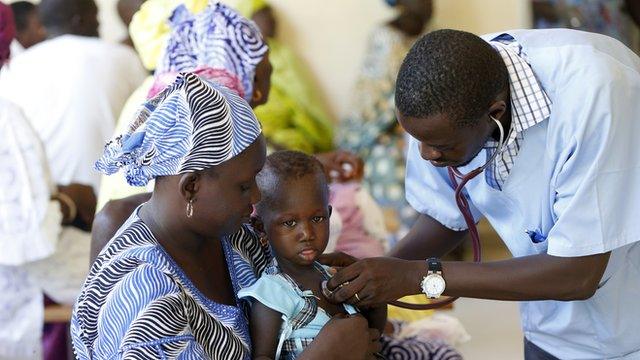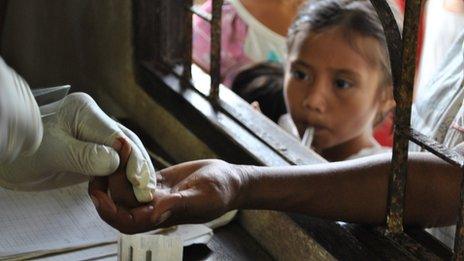Pregnant women told to avoid malaria-risk countries
- Published
.jpg)
Malaria-infected red blood cells
Pregnant women should visit countries with a risk of malaria only if their trip is essential, experts are warning.
Mothers-to-be are more likely to get malaria as their immunity is lowered, says the Royal College of Obstetricians and Gynaecologists (RCOG), external.
Malaria carries serious risks for mother and baby including miscarriage, stillbirth and premature labour.
The tropical disease is transmitted by mosquitoes and causes a fever, flu-like symptoms, vomiting and diarrhoea.
There have been no malaria-related deaths in pregnant or recently pregnant women in the UK in the past decade but the RCOG says it has been receiving inquires from worried women.
In the UK, about 1,500 cases of malaria are reported each year and about 10 people will die, said the RCOG.
Expertise
It says all non-essential trips to areas with a high risk of malaria should be avoided.
Risk areas include, external large areas of Africa, Asia including China and India, Central and South America, parts of the Middle East and some Pacific Islands.
If the trip is unavoidable, the college advises women to seek advice from a centre with expertise in malaria which will provide information on ways to reduce the risk of infection.
Women should make sure they are aware of the risk, take out measures such as mosquito nets for bite prevention and take anti-malarial medication.
Philippa Marsden, who chairs the RCOG's patient information committee, said although the risks were still relatively small it was important that women were well-informed.
Cath Broderick of the RCOG women's network said: "If women are worried about symptoms after returning from a high-risk country and think they may have malaria, they should see a doctor immediately and inform them of their recent travels."
Symptoms can take a week or more to develop after being bitten.
- Published30 July 2014
.jpg)
- Published29 July 2014

- Published23 November 2012
